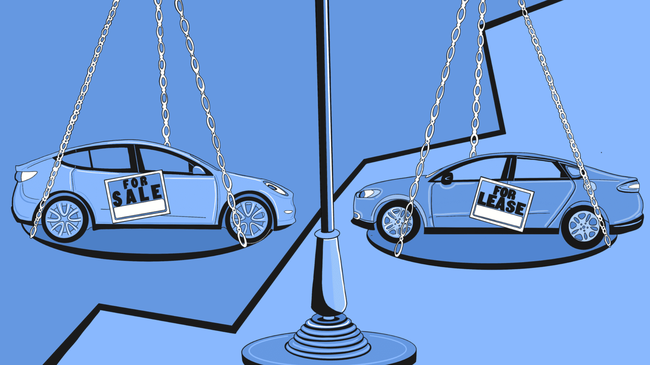Introduction
The decision between leasing and buying a car often stands as one of the most significant financial crossroads for individuals. It's not merely about acquiring a vehicle; it's about aligning one's transportation needs with financial realities, personal aspirations, and long-term goals. With the automotive world evolving rapidly, from the rise of electric vehicles to innovative in-car technologies, the choices we make today can have lasting implications on our wallets and lifestyles. Both leasing and buying present unique benefits and potential pitfalls. As we dive deep into the intricacies of these options, remember that the best choice often emerges from a thorough understanding of one's needs and a clear vision of the future. So, buckle up and let's embark on this comprehensive journey of automobile acquisition.
Leasing a Car: The Details
When you lease, you essentially rent the car for a long-term period, often two to four years. At the end of the term, you have the option to buy the car or return it.
Pros
Lower Monthly Payments
Typically, lease payments are lower than loan payments for buying.
Drive Newer Models
Leasing allows you to enjoy the latest car models every few years.
Less Maintenance Worries
With most leases covering the vehicle under warranty, you often don’t need to stress about repair costs.
No Long-Term Commitment
If your car needs change frequently, leasing gives flexibility without the burden of selling a car.
Cons
No Ownership Equity
At the end of the lease term, you don't own the car unless you decide to buy it.
Mileage Restrictions
Leases come with mileage limits, and exceeding them can be costly.
Potential for Additional Costs
Wear and tear beyond "normal" can result in charges when you return the vehicle.
Long-Term Expense
Over time, constantly leasing can be more expensive than buying and holding onto a vehicle.
Buying a Car: The Insights
When you buy, you're paying to own the car. You can either pay the full amount upfront or finance it and make monthly payments.
Pros
Building Equity
Over time, as you pay off the loan, you're building equity. Eventually, you'll own the vehicle outright.
No Mileage Limits
Own your journey without worrying about how far you drive.
Flexibility to Customize
Make the car truly yours, with no restrictions on modifications.
Potential for Longer-Term Savings
Once the car is paid off, it could be years of no monthly car payments.
Cons
Higher Monthly Payments
Initially, loan payments can be higher than lease payments.
Depreciation
Cars lose value over time, which can make them less advantageous as assets.
Maintenance Costs
As the car ages, maintenance costs rise, especially post-warranty.
Potential for Negative Equity
If you finance and the car's value drops faster than you're paying it off, you might owe more than the car is worth.
Best Practices & Guidelines for Decision Making
Assess Your Budget
Ensure that your choice doesn't strain your monthly finances.
Consider Long-Term Goals
If you like switching cars often, leasing might be for you. If you prefer long-term ownership, consider buying.
Factor in Usage
High mileage drivers might find buying more economical.
Understand Total Costs
Consider insurance, interest rates, and potential fees.
Negotiate
Whether leasing or buying, always negotiate terms.
Conclusion
The question of whether to lease or buy a car can sometimes feel like a monumental conundrum, but it's ultimately rooted in one's personal, financial, and lifestyle circumstances. The allure of driving a new car every few years, with the latest technologies and minimal maintenance concerns, makes leasing an enticing prospect. On the other hand, the tangible sense of ownership, freedom from mileage constraints, and the potential for longer-term financial benefits can make buying an equally compelling choice.
Understanding the ins and outs of both options is crucial. It's more than just a monthly payment comparison; it's about assessing the long-term financial trajectory, the emotional value of ownership versus the flexibility of leasing, and how a vehicle fits into one's broader life narrative.
As the automotive industry evolves, with changing financial products, technological innovations, and shifting consumer preferences, the dynamics of this decision might also transform. But the fundamentals will remain: introspection, thorough research, and careful financial planning are the keystones.
Whatever path one chooses, it's essential to remember that a vehicle serves not just as a mode of transportation but as a vessel carrying life's moments, memories, and milestones. Make the choice that aligns with both your heart and your wallet, ensuring a smooth ride ahead, both metaphorically and literally.

